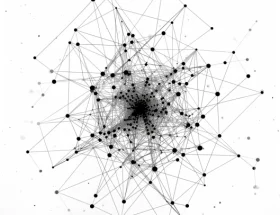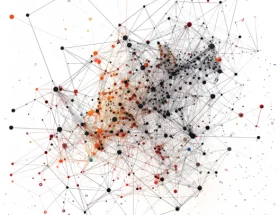This article discusses a Bayesian hierarchical framework for the Two-Parameter Logistic (2PL) Item Response Theory (IRT) model. By introducing hierarchical priors for both respondent abilities and item parameters, this method offers a detailed perspective on latent traits. Additionally, the use of Automatic Differentiation Variational Inference (ADVI) makes the approach scalable and practical for larger datasets.
Background
The 2PL IRT model has long been a major tool in psychometric analysis, offering insights into the relationship between item difficulty, discrimination, and respondent abilities. Traditional approaches, such as Markov Chain Monte Carlo (MCMC), have provided robust results but are computationally intensive, particularly when working with large datasets. Recent developments in Bayesian methods, such as variational inference, have addressed these limitations, enabling more efficient estimation without sacrificing accuracy.
Key Insights
- Hierarchical Priors Enhance Modeling: Introducing hierarchical priors allows for partial pooling of information, which is especially useful in cases with sparse data, improving the robustness of latent trait estimation.
- Efficiency with Variational Inference: The incorporation of ADVI provides a faster alternative to MCMC while maintaining reliable posterior estimation, making it well-suited for modern applications with large datasets.
- Applications Beyond Psychometrics: While developed within a psychometric framework, this method has potential use cases in educational testing, machine learning, and other fields where latent trait analysis is critical.
Significance
This approach bridges the gap between theoretical rigor and practical application. By addressing computational challenges and improving the handling of sparse data, the framework has the potential to enhance the accuracy and scalability of IRT models. These advances open new possibilities for analyzing latent traits in diverse disciplines, including psychology, education, and data science.
Future Directions
Further research could validate this method in real-world settings, focusing on its performance across varied datasets and disciplines. Expanding its application to multi-parameter IRT models or integrating it with machine learning techniques could also yield valuable insights. Practical implementations, such as open-source software tools, could help researchers and practitioners adopt this framework more widely.
Conclusion
The Bayesian hierarchical framework for the 2PL IRT model, combined with ADVI, represents a meaningful advancement in psychometric analysis. By addressing traditional computational challenges and improving flexibility, this method has the potential to shape the future of latent trait estimation across multiple fields.
Reference
Jouve, X. (2024). Bayesian Advancements in the 2PL IRT Model Using ADVI. Cogn-IQ Research Papers. https://pubscience.org/ps-1mVAq-f5d300-06YL










